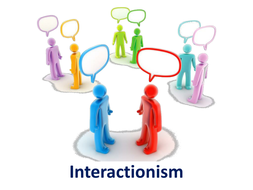
Summary of the Debate
|
Individual = Behaviour caused by a feature of the person (e.g. personality, genes)
Strengths
|
Situational = Environment causes behaviour (e.g.; upbringing, poverty)
Strengths
|
|
Model Answer
|
|
| ||||||||||||
|
Simons and Chabris
The behaviour looked at is attention Individual explanation because the process of attention is unique to the person. Situational because the environment you are in determines what is inputted into the senses before the cognitive process of attention takes place. |
Lee
The behaviour looked at is lying. Individual because the person’s personality determines whether they lie. Situational because the environment you are in determines whether or not ‘white lies’ are acceptable |
Gould
The behaviour looked at is intelligence Individual because a person’s intelligence is unique to them genetically and their upbringing / education. Situational because the environment you are in or have been raised determines whether or not you can answer the questions on IQ tests. |
| comparing_the_debates.pptx | |
| File Size: | 189 kb |
| File Type: | pptx |
Comparing the Debate with Other Debates
Free Will / Determinism
Determinism is similar to situational explanations that focus on specific factors which cause behaviour, which are predictable. Individual explanations tend to favour explanations that include freewill and are less predictable.
Nature / nurture
Individual explanations often assume that behaviour is innate and that the nurture side of the debate is true. By using a situational explanation researchers assume that the environment determines behaviour and therefore the nurture side of the nature/nurture debate is favoured.
Reductionism / Holism
Situational explanations are often hard to quantify when explaining how other people and the environment causes behaviour and so a more holistic approach is needed.
Usefulness
By understanding individual factors that determine behaviour researchers can develop real life applications such as CBT therapy that focuses on changing factors such as faulty cognitions.
Ethics
Situational explanations can be seen as removing individual responsibility whilst individual explanations risk labelling. Both have a level of psychological harm.
Socially sensitive research
The danger of attributing the cause of behaviour to individual factors is that it can lead to socially sensitive research as the implications of findings could suggest that a person’s race, age, gender or disability cause behaviours. This can cause social stigmas and discrimination.
Psych as a Science
Areas of psychology that use individual explanations of behaviour (e.g. the cognitive area), often use scientific methods that are highly controlled whereas situational explanations often find it harder to establish such high control.
Free Will / Determinism
Determinism is similar to situational explanations that focus on specific factors which cause behaviour, which are predictable. Individual explanations tend to favour explanations that include freewill and are less predictable.
Nature / nurture
Individual explanations often assume that behaviour is innate and that the nurture side of the debate is true. By using a situational explanation researchers assume that the environment determines behaviour and therefore the nurture side of the nature/nurture debate is favoured.
Reductionism / Holism
Situational explanations are often hard to quantify when explaining how other people and the environment causes behaviour and so a more holistic approach is needed.
Usefulness
By understanding individual factors that determine behaviour researchers can develop real life applications such as CBT therapy that focuses on changing factors such as faulty cognitions.
Ethics
Situational explanations can be seen as removing individual responsibility whilst individual explanations risk labelling. Both have a level of psychological harm.
Socially sensitive research
The danger of attributing the cause of behaviour to individual factors is that it can lead to socially sensitive research as the implications of findings could suggest that a person’s race, age, gender or disability cause behaviours. This can cause social stigmas and discrimination.
Psych as a Science
Areas of psychology that use individual explanations of behaviour (e.g. the cognitive area), often use scientific methods that are highly controlled whereas situational explanations often find it harder to establish such high control.
|
Applying this debate to Crime
|
| ||||||

